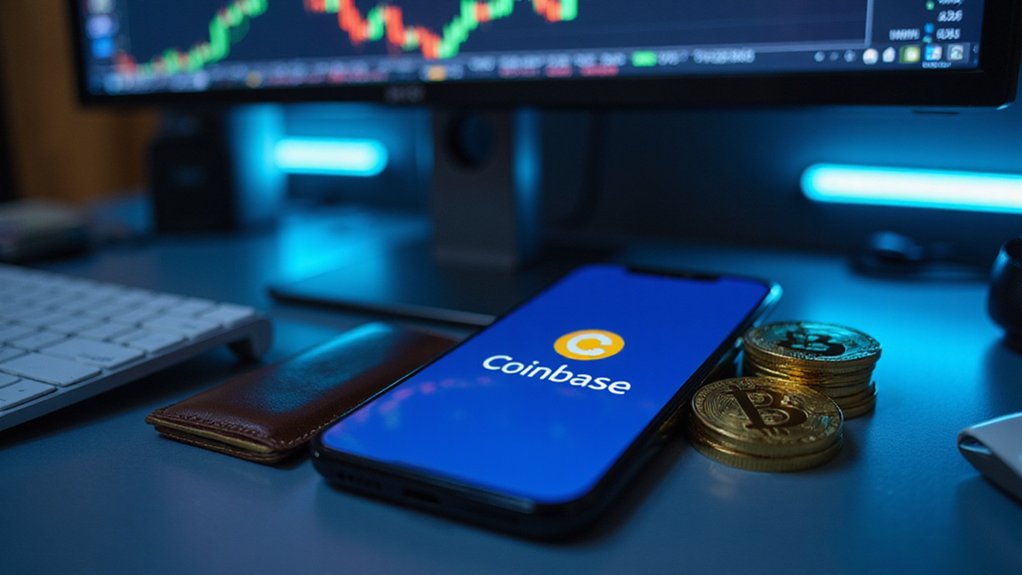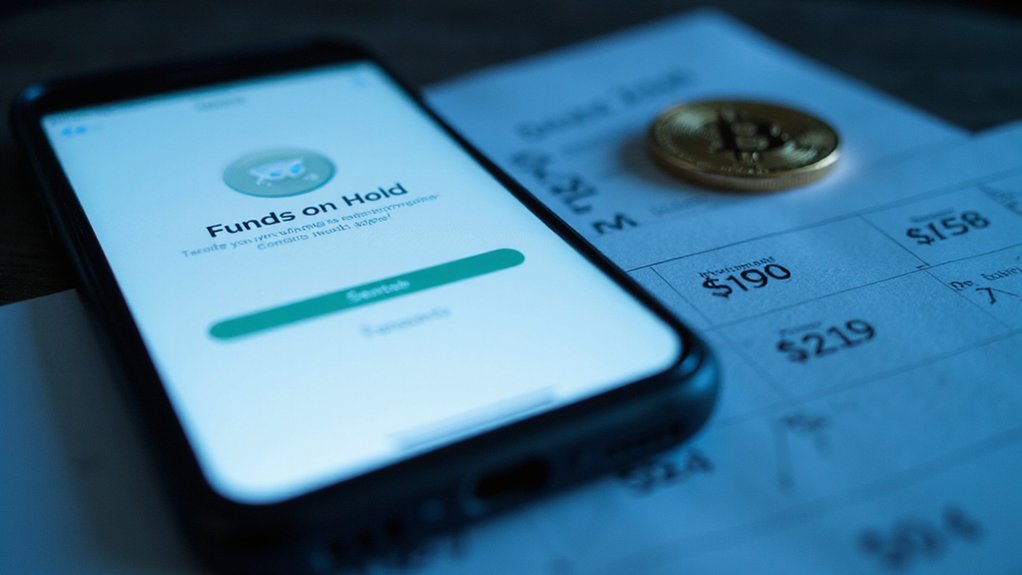Coinbase offers multiple contact channels for users in need of assistance. Support is accessible 24/7 via chat, email, and callback requests through their help portal (help.coinbase.com), where authentication precedes issue categorization. Self-help resources include a knowledge base and community forums for immediate troubleshooting. Formal complaints require existing case numbers and undergo review within fifteen business days. For best resolution, users should prepare thorough explanations with supporting documentation before initiating contact—preparation determines efficiency.

When traversing the labyrinthine world of cryptocurrency exchanges, reaching customer support can often feel like attempting to breach Fort Knox with a plastic spoon.
Fortunately, Coinbase—that behemoth of digital asset exchange—offers multiple avenues for user assistance that range from the immediate to the methodically bureaucratic.
Users seeking support can access help around the clock through chat, phone, and email channels, with the additional option of old-fashioned correspondence via their New York office during standard business hours (a charmingly anachronistic touch in the blockchain era).
The primary gateway to this support ecosystem resides at help.coinbase.com, where users must authenticate themselves before being funneled through a series of issue-categorization prompts designed to route queries with algorithmic efficiency.
This portal serves as the nexus for requesting callback services, initiating live chat sessions, or submitting email inquiries—the latter being particularly valuable when login credentials have vanished into the ether of forgotten passwords and compromised devices.
For those preferring a more autonomous approach, Coinbase maintains an extensive knowledge base and community forums where users can diagnose their own digital maladies or commiserate with fellow traders experiencing similar tribulations.
The Support Center additionally accommodates bug reporting, feedback submission, and feature requests—should one feel inclined to suggest improvements to an already byzantine interface.
When standard channels prove insufficient, formal complaints necessitate an existing Coinbase Support case reference number and submission via designated online forms.
These grievances trigger review by dedicated Customer Complaint Officers, with resolutions typically materializing within fifteen business days—a virtual eternity in cryptocurrency time scales.¹
Phone support becomes accessible through the Help Center’s call request function, with regional numbers available for direct dialing based on geographical location and specific issue taxonomy.
Many users find themselves needing assistance with connecting their preferred payment methods to their accounts, as Coinbase supports various options including bank accounts and credit cards.
Regardless of chosen communication method, users would be well-advised to prepare thorough explanations and documentation before initiating contact, lest they find themselves caught in the recursive purgatory of ticket escalation.
¹Market volatility waits for no complaint resolution.
Frequently Asked Questions
How Can I Recover My Lost Coinbase Password?
Recovering a lost Coinbase password involves several avenues for the forgetful crypto investor. Users can initiate a reset via email ( checking spam folders prudently) or opt for SMS verification—both requiring subsequent two-step verification.
Once authenticated, crafting a sufficiently robust password becomes paramount; eight characters with mixed case, numbers, and special characters will satisfy Coinbase’s security algorithms.
Persistent difficulties warrant contacting support directly, though additional verification hoops await the truly identity-challenged.
What Are Coinbase’s Transaction Fees for Different Cryptocurrencies?
Coinbase’s transaction fees vary across cryptocurrencies, following a tiered maker-taker model rather than currency-specific rates.
Buying and selling incur spread-inclusive fees, while transfers between Coinbase users remain free (though external transfers face network fees).
The Lightning Network commands 0.1% for Bitcoin transactions, and recovery operations extract a 5% fee on amounts exceeding $100—a potentially significant consideration for those retrieving unsupported assets.
Is Staking Cryptocurrency on Coinbase Profitable?
Staking cryptocurrency on Coinbase can be profitable, though returns vary greatly by asset.
Ethereum offers modest yields (~2.37%), while select altcoins reach 14% annually.
The profitability equation balances reward rates against market volatility and opportunity costs of locked assets.
With compounding rewards and minimal entry barriers ($1 for many tokens), passive income generation is accessible—though users should note that theoretical slashing risks exist and unstaking periods can stretch from minutes to weeks.
How Long Does Coinbase Verification Typically Take?
Coinbase verification typically processes within minutes once documents are submitted, though the experience varies wildly across users.
Initial review takes 2-3 minutes in ideal scenarios, but can stretch to 24 hours during high-volume periods or when additional scrutiny is triggered.
Document authenticity issues, technical glitches, or incomplete submissions inevitably extend this timeline.
Clear photos, accurate information, and valid documentation remain the trifecta for expediting what can otherwise become a bureaucratic odyssey.
Can I Transfer Crypto Between Coinbase and Other Wallets?
Users can indeed transfer crypto between Coinbase and external wallets—a fundamental function of any respectable exchange.
The process involves selecting the asset, entering the recipient’s address (or scanning a QR code), and confirming the transaction after verification.
Network fees apply universally.
While Coinbase streamlines transfers to Coinbase Wallet through account connection, manual transfers remain available for the technically inclined or pathologically independent.









